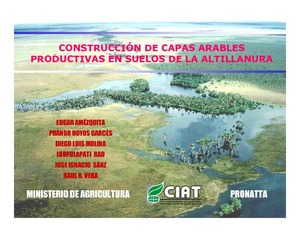CIRAD is a French research centre working with developing countries to tackle international agricultural and development issues.
Status
CIRAD (Centre de coopération internationale en recherche agronomique pour le développement) is a public industrial and commercial enterprise (EPIC) under the joint authority of the Ministry of Higher Education and Research and the Ministry of Foreign and European Affairs.
Mandate
CIRAD works with the whole range of developing countries to generate and pass on new knowledge, support agricultural development and fuel the debate on the main global issues concerning agriculture.
CIRAD is a targeted research organization, and bases its operations on development needs, from field to laboratory and from a local to a global scale.
Activities
CIRAD's activities involve the life sciences, social sciences and engineering sciences, applied to agriculture, food and rural territories.
CIRAD works hand-in-hand with local people and the local environment, on complex, ever-changing issues: food security, ecological intensification, emerging diseases, the future of agriculture in developing countries, etc
Members:
Resources
Displaying 66 - 70 of 72Metodologías y avances del proyecto fitomejoramiento participativo del sorgo y arroz de secano en Centro América
Mejoramiento poblacional, arroz de secano
El proyecto de arroz del CIAT
Construcción de capas arables productivas en suelos de la altillanura
Application de l’analyse multicritère à l’évaluation des critères et indicateurs
Multi-Criteria Analysis (MCA) is a decision-making tool developed for complex problems. In a situation where multiple criteria are involved confusion can arise if a logical, well-structured decision-making process is not followed. Another difficulty in decision making is that reaching a general consensus in a multidisciplinary team can be very difficult to achieve. By using MCA the members don't have to agree on the relative importance of the Criteria or the rankings of the alternatives.



